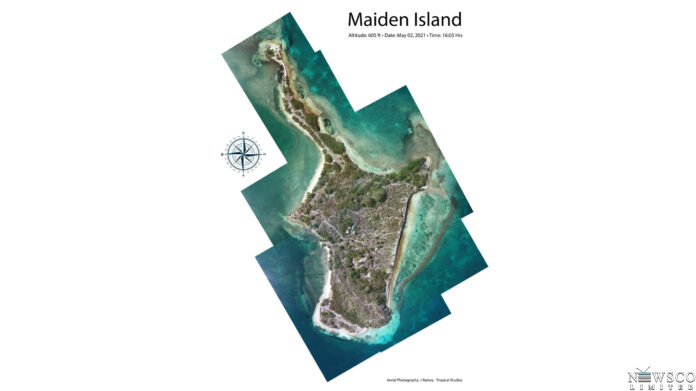A new restaurant and beach club being developed on uninhabited Maiden Island – which has invoked the ire of local environmentalists – is set to open by December.
The apparent clearing of mangroves on the pristine 20-acre isle recently caused consternation among some local residents who fear for the impact on its wildlife. Others have raised concerns about the erasure of its traditional cultural use; for generations, Maiden Island was a haven for campers and picnickers who flocked to enjoy its unspoilt beauty.
The tiny uninhabited isle – formerly owned by American financier Allen Stanford – has been owned by Jumby Bay, the exclusive private island that sits to its north-east, since December 2018.
Yesterday, Jumby Bay responded to disquiet with a statement confirming that while five acres of Maiden Island would be set aside for the publicly accessible facility, the remaining 75 percent would be retained as a “conservation zone”.
The resort said the isle – which it has renamed ‘Little Jumby’ – will serve as a base for a full-time conservation ranger who will carry out research and conservation efforts both on Little Jumby and Jumby Bay Island as well as in the surrounding ocean.
“Natural habitats on the island will be protected and enhanced and conservation areas will be accessible via hiking trails and scenic overlooks. Education programmes in the natural environment will be developed for local students,” a statement said.
“Originally created from dredged material from the adjacent channel, Little Jumby was a scrub island. It was initially intended to be developed by its previous owner. Their departure left abandoned structures and materials and, over the years, trash, debris and remnants of camps and fires have littered the island.”
The resort said it had addressed these issues by cleaning up the island and protecting sensitive conservation areas and plant species. Environmental reviews of the area have also been conducted, it said, and “special care taken to ensure that mangroves and other plant species are not being harmed” amid the development of the hospitality facility.
The statement also alluded to what it described as “Jumby Bay’s sustainability philosophy”. The private isle’s sea turtle nesting monitoring programme is one of the oldest in the Caribbean, it noted.
It added that a shuttle would be launched to transport visitors between Antigua and the offshore island to visit the restaurant and explore the new nature trails. Proceeds from the restaurant “will directly fund habitat restoration and conservation projects both on Little Jumby and in the surrounding sea”, the statement said.




